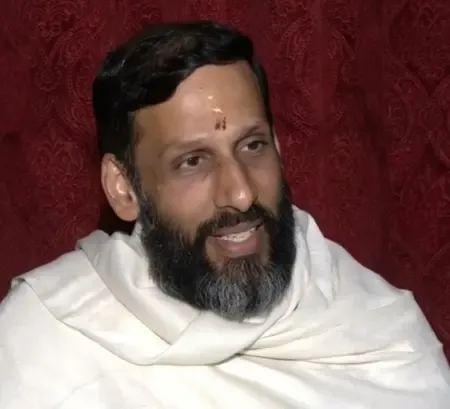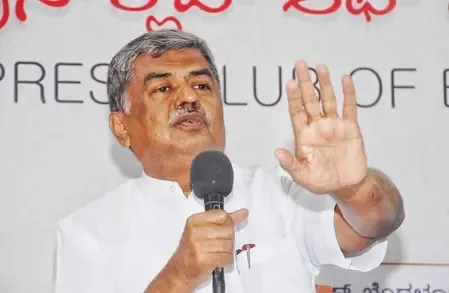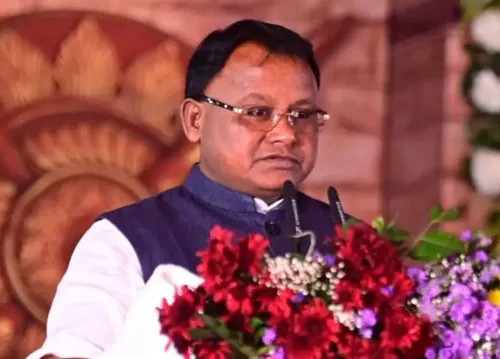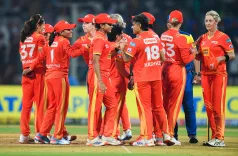How Can We Ensure Collective Responsibility to Preserve Rivers? Jal Shakti Minister Patil Explains
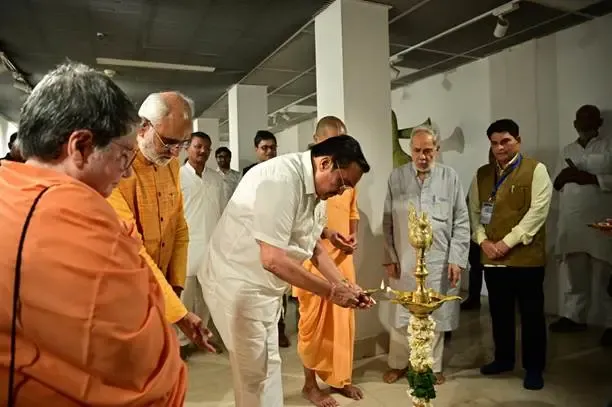
Synopsis
Key Takeaways
- Collective Responsibility: Everyone must contribute to river conservation.
- Government Initiatives: Multiple levels of action are underway for effective river protection.
- Cultural Significance: Rivers are vital to India's identity and heritage.
- Engagement through Festivals: Events like Nadi Utsav foster community involvement.
- Educational Dialogues: Seminars and films highlight ecological and cultural aspects of rivers.
New Delhi, Sep 26 (NationPress) Jal Shakti Minister C.R. Patil inaugurated the 6th edition of 'Nadi Utsav' on Friday, emphasizing the shared responsibility to maintain rivers for the benefit of future generations.
He reiterated the government's dedication to combat pollution and protect rivers, stating, "Efforts are being implemented at three levels - short-term, mid-term, and long-term - for river conservation. Under the guidance of Prime Minister Narendra Modi, substantial initiatives are in motion through Water Vision@2047."
The Minister highlighted the importance of rivers in fostering communities and shaping India's cultural identity, asserting the need for collective action in safeguarding rivers for posterity, as mentioned in an official statement.
"India is known for its rivers, with the magnificent Ganga flowing through our land. It is our responsibility to keep our rivers clean and unpolluted," he remarked.
He underscored that rivers are not just resources but also the essence of our emotions and culture. He warned of the significant harm caused by human activities to rivers, stressing that their conservation is a joint obligation. The Minister also praised the Indira Gandhi National Centre for the Arts (IGNCA), Ministry of Culture, for continuously organizing Nadi Utsav.
The opening day of the three-day festival featured the launch of a National Seminar on 'Riverscape Dynamics: Changes and Continuity', which gathered notable scholars and experts to discuss the cultural, ecological, and artistic aspects of rivers.
Over 300 research papers were submitted for the seminar, with 45 selected for presentation. This segment is conducted in collaboration with the English Department of the University of Delhi.
Alongside the seminar, the 'My River Story' Documentary Film Festival debuted its screenings, showcasing engaging films such as 'Gotakhors: Disappearing Diving Communities', 'River Man of India', 'Arth Ganga', 'Yamuna's Sewage Treatment Plant', 'Cauvery – River of Life', and more.
These films illuminate ecological issues, traditional customs, and the profound human relationship with river systems, demonstrating how rivers continue to influence lives and landscapes.
Nadi Utsav fosters a meaningful exchange between tradition and modern practices, ensuring communities remain connected to their riverine heritage.


